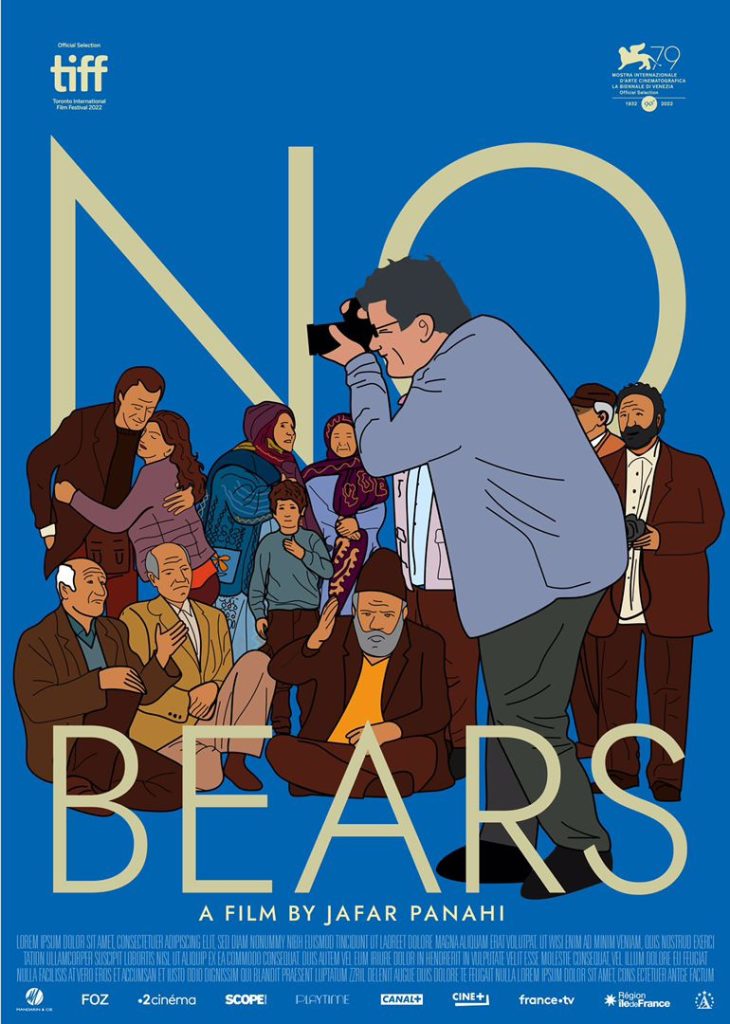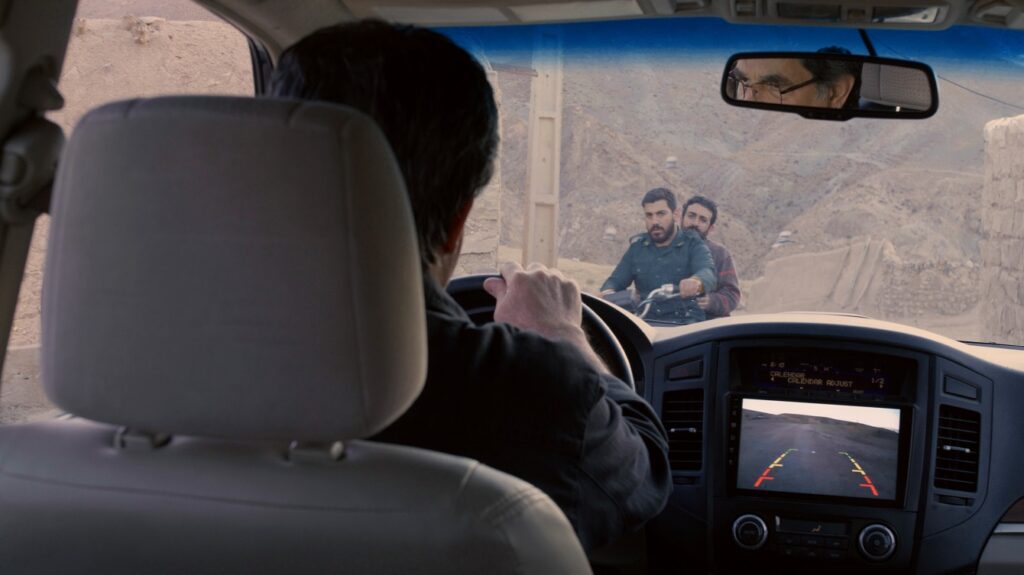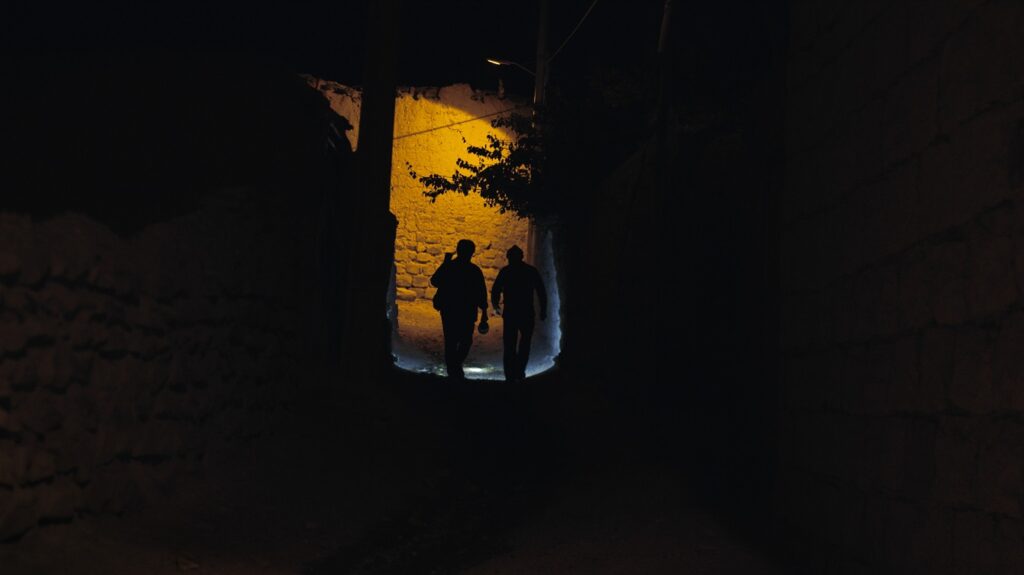
Persian filmmaker, associated with the Iranian New Wave film movement, Jafar Panahi, has been persecuted in his home country for years because of the explicit social critique he has expressed through his craft. His latest film, No Bears, that won the Special Jury Prize at the 79th Venice International Film Festival, continues his plight in denouncing the injustices he witnesses in the Islamic Republic of Iran.
The film was shot in secrecy, since Panahi was banned from making films for twenty years and was sentenced to six years in prison for opposing the regime — that affected also Iranian film directors Mostafa Aleahmad and Mohammad Rasoulef (winner of the Golden Bear for There Is No Evil). Despite the political difficulties, Panahi remains one of the most acclaimed and appreciated Iranian filmmakers, whose work received recognition worldwide, with awards such as the Golden Bear at the Berlin Film Festival for Taxi Teheran, the Golden Leopard at the Locarno Film Festival for The Mirror and the Golden Lion at the Venice Film Festival for The Circle.

No Bears (Khers Nist) plays with meta-levels in terms of style, maintaining the director’s Neorealistic approach, as humanitarian themes emerge with utter rawness. The motion picture portrays two parallel love stories. In both, lovers are tormented by latent and inescapable obstacles: the overbearing weight of superstition and the dynamics of power.
Panahi’s new picture begins with a scene between a man and a woman: Zara (Mina Kavani) is a waitress who works in a bar in a Turkish city, who meets Bakhtiar (Bakhtiyar Panjeei). He has good news for her: after years of waiting he managed to get his hands on a stolen passport that will allow her to flee to Europe. But Zara refuses to leave without him. Then comes a surprising twist. We hear someone calling “Cut!” Assistant Director Reza (Reza Heydari) turns to the camera to talk to the director who is watching from a remote location.
Jafar Panahi gives him feedback on the scene from his computer. The scene then moves to a remote Iranian village where Panahi is observing this footage from his laptop, trying to find a stable internet connection.

Panahi is part of the story, a quiet character who plays himself and mostly observes what happens around him. He acts like a fly on the wall, despite the people he interacts with demand his reactions and participation. Panahi is stuck, unable to leave the country. He moved to this small town on the Turkish border to be closer to the set, where he rented a cottage from Ghanbar. The people of the village grow suspicious towards him when a man accuses the director of taking a photo in which his betrothed woman exchanges affections with another man.
This plunges Panahi in a microcosm where he experiences firsthand the ancient and archaic rules that generate primordial collective upheavals. Patriarchy is denounced with lucidity, revealing a world where girls are promised to the man they ought to marry from the moment they leave the womb (with the umbilical cord serving as a marital contract). Any kind of deviation from the path of this Ur-civilisation is seen as a cataclysm and comes with punitive consequences.
Free will is annihilated by traditions that have never been questioned and continue to be legitimated. Panahi makes a film using very little but delivering an abundance of food for thought. The ideas are simple, the staging is essential and the narratives — whether real or fictional — are poignantly impactful. The critical gaze on Iran because a universal commentary on prejudice leading to the usurpation of power. The title of the film epitomises a code of conduct that places importance on silence in the face of questioning authorities. Panahi uses the metaphor of bears to talk about mentality, traditions, rules and customs which, on the basis of nothing, are able to generate real fears…even though everyone is aware that there are “No Bears.”
Final Grade: A-

